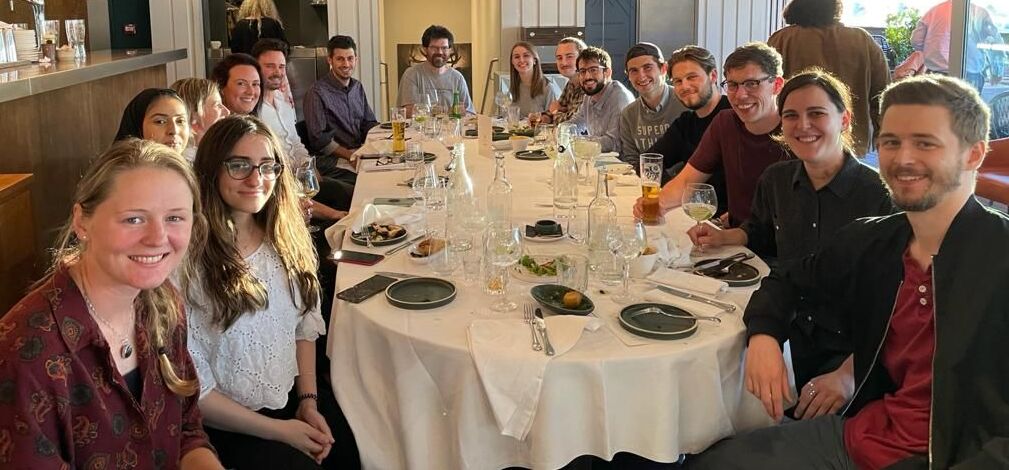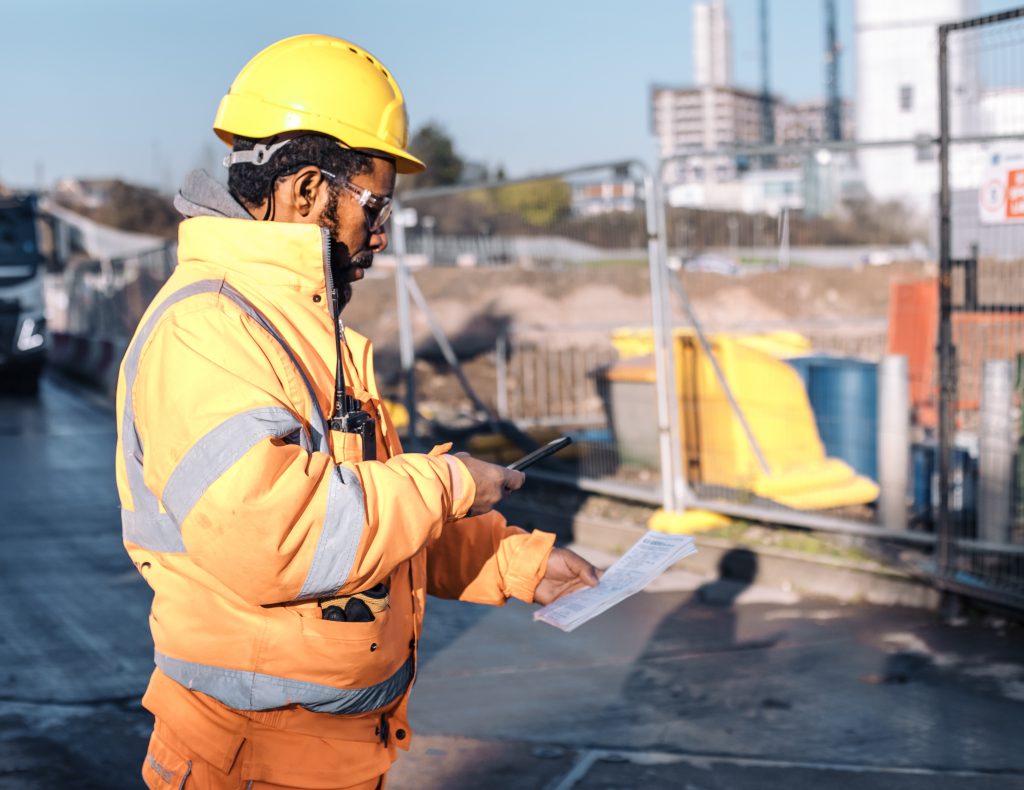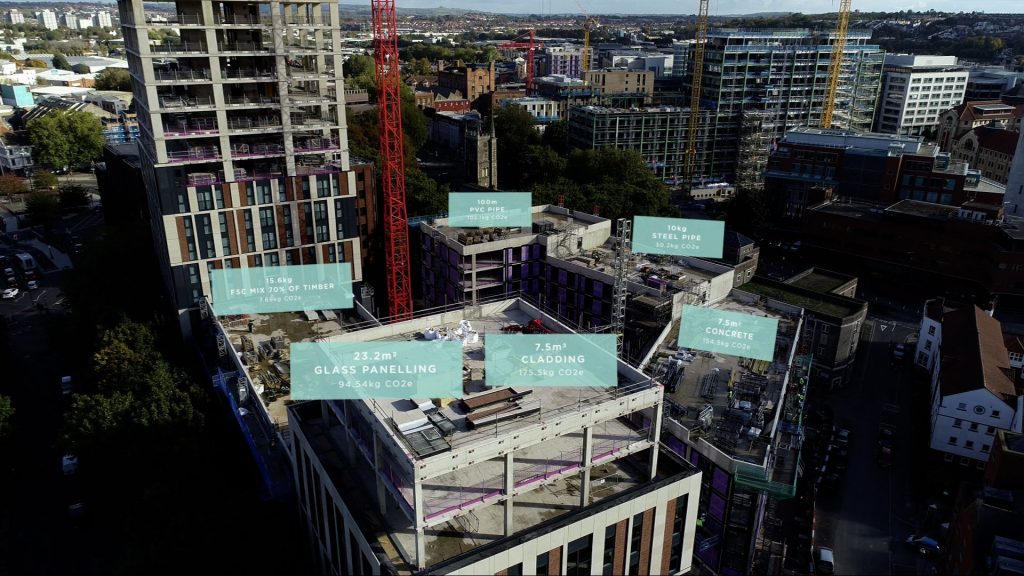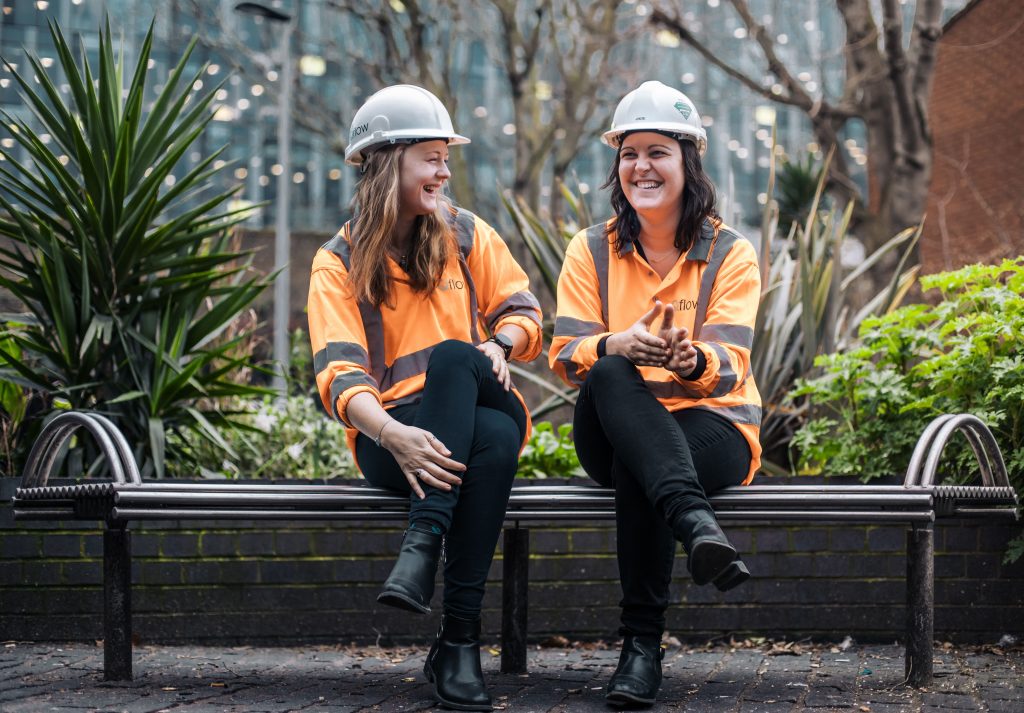We did it. We closed £1.7M of venture capital investment to grow Qualis Flow and build a more sustainable construction industry.
There are so many interesting dynamics affecting a Construction Tech start-up’s ability to raise now, both in Venture Capital and in Construction. These have both helped and hindered us on this journey to grow our company and shape the future of construction. To celebrate the closing of further investment, and to acknowledge the key factors and players that have influenced this journey, I have written this more extended piece. Feel free to skip through to the sections that interest you the most.
Thank you
Firstly, I’d like to thank our existing investors who backed us early and many of whom have followed this round and continue to support us as we grow. PiLabs, Entrepreneur First, and our Angels.
I’d also like to thank those new investors who have joined us on this next stage of the journey, seeing the potential of Qflow, and acknowledging our progress so far. We set out to bring on board at least one impact investor and one international Construction tech investor and we managed two of each! Green Angel Syndicate and Vala Capital bring a strong focus and support network in developing and delivering ESG positive companies and governance processes. We are very excited to continue to develop this as we grow the team and our client base.
We are also excited to welcome Goldacre, GroundBreak, Suisse Immo Lab, and Verve Ventures representing international property and construction tech’ investors. They bring a wealth of experience in supporting international expansion into their local markets and a strong network across Real Estate and investment.
Most importantly I must thank my co-founder Jade Cohen and our team. Anyone who has worked in a start-up will know how intense the ups and downs are, often experiencing multiple peaks and troughs in one day. The comradery and support of a great team cannot be underestimated, and the beautiful eclectic mix of people we have around us has certainly made the past 3 years not only bearable but truly enjoyable.

Construction Industry Trends
Accelerated digitisation brought on by remote working. There is no question as to whether the COVID-19 pandemic changed our lives and ways of working. It is tempting to focus on the negatives, but there have also been some clear benefits to the accelerated shift caused by the need to isolate. Construction, an industry well known for its technophobic and, somewhat regressively, stoic commitment to ‘traditional’ approaches, has been forced to change its ways and switch to digital communications, document sharing, and site management. This has been overwhelmingly positive for tech’ start-ups like Qflow that wish to offer a new, more efficient, more digital way of working.

Net Zero & Build Back Better. In her final days as PM, Teressa May introduced the legal commitment to New Zero Carbon by 2050. This was somewhat dwarfed by Brexit and the rising pandemic, but not entirely forgotten. A few passionate, committed, and influential individuals picked up this mandate and ran with it. This resulted in the Contractors Declare movement in June 2020. Following this, the Institution of Civil Engineers among other drew on their network to for a Carbon working group to explore and discuss the opportunities and challenges of delivering this ambition as an industry. This has resulted in the declaration of road maps to net zero by most of the leading contractors, developers and consultants.
The Golden Thread of Data has been on the lips of many in the high-rise residential end of our industry. The Hackitt review, carried out to assess how the Grenfell Disaster could have possibly happened called for, among other things, better data on what is actually going into our buildings, and does that meet the design criteria laid out. This has opened up a wider discussion across the industry on the value of data, and it’s critical role in managing quality and safety across our assets.

Brexit, the global pandemic and climate change have all affected the stability of the construction supply chain. This has resulted in many materials becoming difficult to source and, as a result, significant price inflation. The need to gain greater transparency and control over one’s supply chain has never been greater, and data plays an important role in delivering this.
These significant changes in the industry all create a very favourable environment for innovations, like Qflow, that can provide greater transparency and insight across multiple construction teams, supporting the industry in managing, not just cost and risk, but also the sustainability of their supply chain and resources.
What this means for Qflow?
This investment will enable us to expand across the UK, reaching more contractors and developers, and sharing greater and more valuable insights across the industry. We will be growing our team in order to accelerate this expansion and support our growing client base.
What this means for the industry?
Qualis Flow is on a mission to enable a construction industry that uses only the resources it needs in the most efficient way possible, delivering a built environment that meets the needs of society today without compromising future generations.
There are so many opportunities to eliminate waste, both in terms of physical materials and in cost and time. By capturing better data, and delivering skill and insight to use it effectively, Qflow can provide the industry with the tools it needs to deliver Net Zero and continue to improve its productivity and profit to create a more sustainable industry and built environment.
What we’ve learned & venture capital trends
Planning pays off (include role segmentation): This is the second round of venture investment we have gone out for. Back in 2019, although we read the books (I can highly recommend Venture Deals as a guide to raising early investment from VCs) and took advice from more experienced founders, we had no real idea of what we were getting into. This time we could be far more prepared. Jade and I decided early to split our focus, with myself taking on 99% of fundraising and Jade taking on 99% of the company operations. I was still involved in the client relationship, but as much as possible Jade sheltered me from the day-to-day, and vice-versa. This was hugely beneficial, enabling us to stay focused and act as mutual ‘sh*t umbrellas’ for the inevitable heartache that comes with raising capital and running a growing team. We also set clear target timelines, knowing these would slip but giving anchor points from which to assess progress.
It’s someone’s law that if you focus on traction they want to see product vision and visa-versa. As traction and sales were a key focus last time we made this the strong center of our investment case, and as such, early on we were rejected a few times based on limited product vision. It’s not that we didn’t have a strong product vision, but we hadn’t put it front and center, favouring customer validation. In hindsight, talking to lower fit VCs earlier may have helped us to more quickly reshape our pitch to bring the product vision to the fore and may have prevented the frustration of losing VCs we liked early because they couldn’t see the vision we had. After shifting our narrative focus, we had much more success.
ESG is on the rise. When raising back in 2019 the sustainability aspect of our product and business seemed more of a hindrance than a help, with investors getting tunnel vision around Qflow being a sustainability tool and therefore likely to struggle to sell into an industry that is so notorious for its laissez-fair attitude to impact management. This has changed dramatically.
Investors are now actively seeking out start-ups that tackle the world’s most pressing issues. I believe this stark shift in approach has been driven by two things. One, with the public waking up to the now very present global disaster of climate change, pension funds and investment houses are keen to put money into ESG positive assets. Two, the construction industry itself has gone through a radical change with respect to carbon, responsible sourcing of materials, and supply chain management, all of which make an impact tool like Qflow a very attractive investment.
The rise of ESG and impact investing, although not perfectly executed, is an overwhelmingly positive thing.

Gender bias still plays a significant role. I hate that I still feel the need to speak about this, but the experience we have had with fundraising this time certainly shows that underlying gender bias is still affecting the ability for female founders to raise capital and grow their businesses.
In 2019 we were aware that these largely unseen forces were likely to be affecting our raise, but beyond a few ill-thought-out comments, we didn’t note any defining moments that we could say ‘this is gender bias. In 2021, this sadly was not the case.
I’m not sure if Jade and I are just becoming better at picking out the phrases that, not so subtly, give away that gender is an influencing factor, or whether it is in fact getting worse. But what I am sure of, is that this round pushed both Jade and I to the limits of our grit and determination to carry on in spite of the rigged system. There is too much to write on in this piece, but we will revisit this topic in detail in the future.
Closing notes:
I hope you have enjoyed this piece and have found something from any one of the above areas to take away and consider further. If you’d like to discuss any of the above and/or find out more about what we are doing at Qualis Flow, please feel free to reach out to me on LinkedIn or Brittany.harris@qualisflow.com
